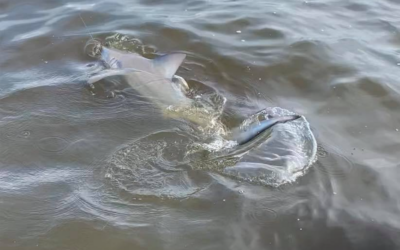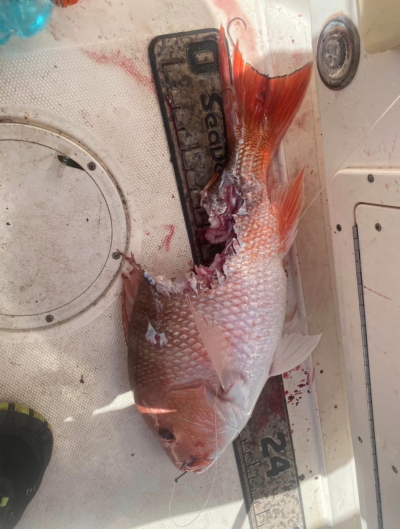SHARKED Act Moves Forward
Keith Lusher 09.28.23
In July, federal legislation was introduced that would be responsible for improving coordination and communication across the fisheries management community on shark depredation. The legislation was called the SHARKED Act, and it began the process of finding a science-based response to shark depredation.

Last week, The U.S. House Committee on Natural Resources held a markup hearing of six bills with one of them being SHARKED Act (H.R. 4051). The result of the hearing was music to the ears of recreational anglers who have been plagued by sharks tearing apart their catch before they can reel it up.

The committee approved the SHARKED Act by unanimous consent, putting the bill one step closer to becoming law.
Congressman Rob Wittman is a proponent of the H.R 4051 and said,“The growing support for the SHARKED Act emphasizes how widespread increased shark depredation has become in the United States,” said Congressman Wittman. “Not only are anglers losing their catch to sharks at alarming rates, but they are also losing their tackle when sharks bite onto their lines. I’m grateful for the support of these organizations who are leaders in protecting our anglers, fish, sharks, and marine ecosystems. I look forward to continue leading this important effort with my colleagues Reps. Graves, Soto, and Veasey.”

The problem is the result of the fisheries management under the Magnuson-Stevens Fishery Conservation and Management Act that, over decades, has focused on rebuilding overfished stocks and maintaining sustainable shark fisheries. Without any sunset clauses on rebuilding the shark population there seems to be no end in sight of leveling off the growth of the species.
While there is no loosening of restrictions on shark that the Act will enact, supporters said it is a step in the right direction to solve the problem of what seems to be shark overpopulation in US waters.

